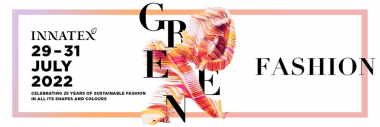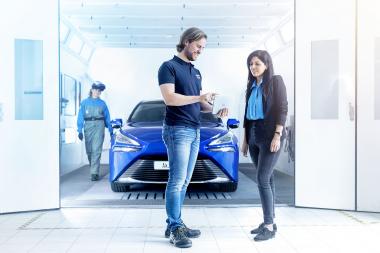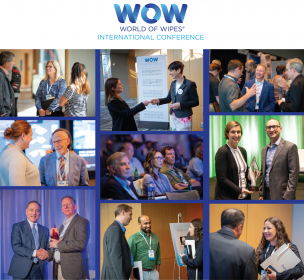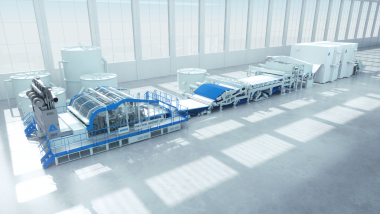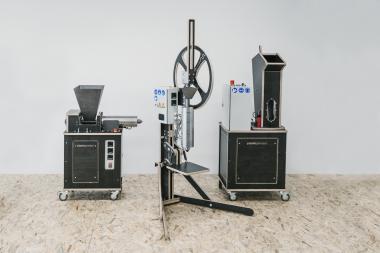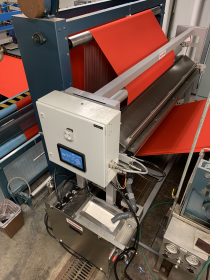„Design Goals“ in Augsburg – Alumni setzen Zeichen für nachhaltige Textilien
Noch bis zum 14. September 2022 zeigt das Staatliche Textil- und Industriemuseum Augsburg (tim) die Sonderausstellung „Design Goals“ zu nachhaltigen Textilien. Die Exponate stammen von Designerinnen, die am Fachbereich Textil- und Bekleidungstechnik an der Hochschule Niederrhein ihre Master-Ausbildung absolvierten und nun im Rahmen eines Europäischen Mentoring-Programms zusammen mit Professorin Dr. Marina-Elena Wachs ausstellen.
Zu sehen sind Modeentwürfe und andere Designobjekte aus Airbag-Stoffen, aus Textil-Ausschussware, aus Flusen, aus Herbstlaub, Papiergarnen und vieles mehr. Vor dem Hintergrund endlicher Ressourcen liegt der Fokus der zukunftsweisenden Arbeiten auf einem nachhaltigen Umgang mit dem Material Textil.
Die Ausstellung thematisiert den kreativen Prozess hinter vielversprechenden Innovationen im Mode-, Textil-, Interior- und Automotive Design und in der Architektur. Die Ausstellung gibt Einblicke in analoge und digitale Prozesse heutigen Gestaltens in einer nachhaltigen Welt von morgen.
Der Titel „Design Goals“ bezieht sich auf die Ziele für nachhaltige Entwicklung (Sustainable Development Goals SDGs) der Vereinten Nationen. Die Ausstellung zeigt Design-Lösungen und Strategien in Form von Produkten, Materialien und Konzepten für die Zukunft: Kreative und textiltechnische Lösungen aus bisher ungenutzten Ressourcen.
Textil- und Industriemuseum Augsburg Hochschule Niederrhein Hochschule Niederrhein, Textilien, Studenten
Hochschule Niederrhein








